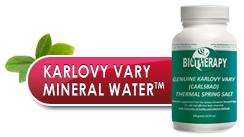After gallbladder surgery, some people have digestion problems and upper abdominal pain. The medical term for this condition is postcholecystectomy syndrome (PCS). Gallbladder removal surgery is called cholecystectomy. By medical research, postcholecystectomy syndrome strikes 10-15 percent of people without the gallbladder. More than 700,000 cholecystectomies are performed annually in the US. It may presume the crowd of individuals, which suffer from indigestion and pain after gallbladder removal.
The postcholecystectomy syndrome may occur in two weeks or two decades following gallbladder surgery. The symptoms can be mild and just diminish of person’s quality of life. For some patients, PCS makes life miserable. Mostly, it does not depend on upon the surgical techniques, equipment, or experience of the surgeon. Just absence of gallbladder causes this problem.
The typical symptoms of the postcholecystectomy syndrome include
- Intolerance of some foods, mostly fatty foods
- Upper abdominal pain
- Constant gas, bloating, flatulence
- Nausea, vomiting
- Stubborn heartburn
- Constipation
- Chronic diarrhea
- Symptoms, which are very far from stomach such as depression, anxiety, low memory, skin dryness or itchiness, yellowish skin, blurred vision, bruises, tingling and numbness, often colds and more
The problem is that there is no conventional treatment of the PCS. The patients are under the care of the variety of doctors and medical practitioners with different skills, knowledge, and viewpoint on the postcholecystectomy syndrome. There are three kinds of situations.
The first one is when the symptoms happen rarely, and the entire lab and visual tests are normal. Patient has symptomatic treatment with the painkillers or gets a referral to a pain management clinic, or sends to a psychiatrist for depression and anxiety. Frequently PCS misdiagnosed with gastroesophageal reflux disease, food poison or food sensitivity, gastritis, dyspepsia, IBS, dumping syndrome, etc.
The second situation, the lab, and visual tests demonstrate increases in the pancreatic or liver enzymes, presence of the dilatation of the common bile duct. Symptoms become chronic. That is followed by numerous diagnostic tests, which are often insecure, visits to the countless doctors, hospitals, and taking all sorts of medications.
The third scenario, the individual underwent many tests that revealed severe structural changes in the bile duct, pancreas, liver, duodenum, and sphincter of Oddi. At this time, patients have numerous doctor visits, medications, ER admissions, consultations of specialists, and endoscopic surgeries.
These three situations are not separate disorders; these are the different stages of the sphincter of Oddi dysfunction, chronic biliary pancreatitis, metabolic acidosis, dysbiosis, and adhesion syndrome. Biliary means connection to bile system. The health of the bile, bile ducts, sphincter of
Oddi, and gallbladder is inextricably bound to the health of the pancreas, small, large intestines, and stomach.
Like all chronic diseases, there are the functional stage, structural stage, and advanced stage of the postcholecystectomy syndrome. In our website, our articles on the Internet, one may find a lot of information about causes and holistic, natural treatment of various symptoms of the PCS with the focus on the root of problems.
We cannot put gallbladder back; however, we can improve the quality of life, reduce pain and digestive problems. Our decades of the experience in treating PCS teach us that the early, holistic treatment can postpone complications and progression of the postcholecystectomy syndrome.
The great deal of medical information about treatment many conditions after gallbladder removal is in the 500 pages book by Peter Melamed, Ph.D. “Natural health before and after gallbladder removal.” Click here
To obtain the benefits of the Biotherapy Clinic from healing the postcholecystectomy syndrome, reduce pain, indigestion after gallbladder removal one can select the following options:
- Telephone consultation (415) 409-3939
- Office consultation

